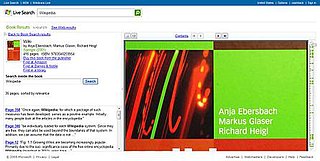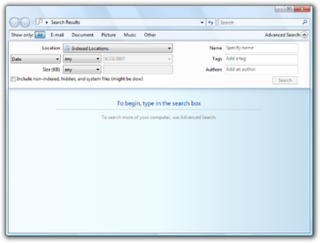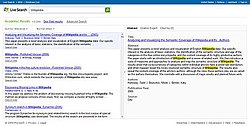
Internet Explorer is a discontinued series of graphical web browsers developed by Microsoft and included in the Microsoft Windows line of operating systems, starting in 1995. It was first released as part of the add-on package Plus! for Windows 95 that year. Later versions were available as free downloads, or in-service packs, and included in the original equipment manufacturer (OEM) service releases of Windows 95 and later versions of Windows. New feature development for the browser was discontinued in 2016 in favor of new browser Microsoft Edge. Since Internet Explorer is a Windows component and is included in long-term lifecycle versions of Windows such as Windows Server 2019, it will continue to receive security updates until at least 2029. Microsoft 365 ended support for Internet Explorer on August 17, 2021, and Microsoft Teams ended support for IE on November 30, 2020. Internet Explorer will be discontinued on June 15, 2022, after which, the alternative will be Microsoft Edge with IE mode for legacy sites.
CiteSeerx is a public search engine and digital library for scientific and academic papers, primarily in the fields of computer and information science. CiteSeer is considered as a predecessor of academic search tools such as Google Scholar and Microsoft Academic Search. CiteSeer-like engines and archives usually only harvest documents from publicly available websites and do not crawl publisher websites. For this reason, authors whose documents are freely available are more likely to be represented in the index.

MSN is a web portal and related collection of Internet services and apps for Windows and mobile devices, provided by Microsoft and launched on August 24, 1995, the same release date as Windows 95.

Google Desktop was a computer program with desktop search capabilities, created by Google for Linux, Apple Mac OS X, and Microsoft Windows systems. It allowed text searches of a user's email messages, computer files, music, photos, chats, Web pages viewed, and the ability to display "Google Gadgets" on the user's desktop in a Sidebar.

Google Scholar is a freely accessible web search engine that indexes the full text or metadata of scholarly literature across an array of publishing formats and disciplines. Released in beta in November 2004, the Google Scholar index includes most peer-reviewed online academic journals and books, conference papers, theses and dissertations, preprints, abstracts, technical reports, and other scholarly literature, including court opinions and patents. Google Scholar uses a web crawler, or web robot, to identify files for inclusion in the search results. For content to be indexed in Google Scholar, it must meet certain specified criteria. An earlier statistical estimate published in PLOS ONE using a Mark and recapture method estimated approximately 80–90% coverage of all articles published in English with an estimate of 100 million. This estimate also determined how many documents were freely available on the internet.

Windows Live is a discontinued brand-name for a set of web services and software products from Microsoft as part of its software plus services platform. Chief components under the brand name included web services, several computer programs that interact with the services, and specialized web services for mobile devices.

Google Books is a service from Google Inc. that searches the full text of books and magazines that Google has scanned, converted to text using optical character recognition (OCR), and stored in its digital database. Books are provided either by publishers and authors through the Google Books Partner Program, or by Google's library partners through the Library Project. Additionally, Google has partnered with a number of magazine publishers to digitize their archives.

Bing Maps is a web mapping service provided as a part of Microsoft's Bing suite of search engines and powered by the Bing Maps for Enterprise framework.

Microsoft Bing is a web search engine owned and operated by Microsoft. The service has its origins in Microsoft's previous search engines: MSN Search, Windows Live Search and later Live Search. Bing provides a variety of search services, including web, video, image and map search products. It is developed using ASP.NET.
Windows Live Toolbar was a browser extension toolbar for Internet Explorer. It superseded MSN Search Toolbar. Windows Live Toolbar provided a simple search interface that starts to list results as the user types in a search query, and uses Bing as its search engine. The toolbar also allows users to synchronize their Internet Explorer favorites across multiple computers, and provides an interface to Windows Live and MSN services.

Live Search Books was a search service for books launched in December 2006, part of Microsoft's Live Search range of services. Microsoft was working with a number of libraries, including the British Library, to digitize books and make them searchable, and in the case of out-of-copyright books, available across the web.
Microsoft family features is a free set of features available on Windows 10 PC and Mobile that is bundled with the Windows 10, Home edition operating system. On the 17th of July 2020, Microsoft released Microsoft Family Safety on Google Play and App Store (iOS) as well. Starting in Windows 10, a Microsoft Account is required to use the Microsoft family features. A parent can manage settings for a child if both of their Microsoft Accounts are in the same family. When parents turn on settings for their child, these settings are applied to every device that the child logs into with that Microsoft Account.
Bing Shopping is a products search and discovery service that helps save time by bringing products from multiple sellers together on a single website. It uses the power of Bing to show product results–including photos and product details. Products can be filtered and prices compared. Purchases are completed on the seller's website.

Microsoft Academic Search was a research project and academic search engine retired in 2012. It relaunched in 2016 as Microsoft Academic.
CINAHL is an index of English-language and selected other-language journal articles about nursing, allied health, biomedicine and healthcare.

Outlook.com is a personal information manager web app from Microsoft consisting of webmail, calendaring, contacts, and tasks services. Founded in 1996 by Sabeer Bhatia and Jack Smith as Hotmail, it was acquired by Microsoft in 1997 for an estimated $400 million and relaunched as MSN Hotmail, later rebranded to Windows Live Hotmail as part of the Windows Live suite of products. Microsoft phased out Hotmail in October 2011, relaunching the service as Outlook.com in 2012.

Windows Search is a content index desktop search platform by Microsoft introduced in Windows Vista as a replacement for both the previous Indexing Service of Windows 2000 and the optional MSN Desktop Search for Windows XP and Windows Server 2003, designed to facilitate local and remote queries for files and non-file items in compatible applications including Windows Explorer. It was developed after the postponement of WinFS and introduced to Windows constituents originally touted as benefits of that platform.

MSN Messenger, later rebranded as Windows Live Messenger, was a cross-platform instant messaging client developed by Microsoft. It connected to the Microsoft Messenger service while also having compatibility with Yahoo! Messenger and Facebook Messenger. The client was first released as MSN Messenger Service on July 22, 1999, and was marketed under the MSN branding until 2005 when it was rebranded under Windows Live. It has since been officially known by its second name, although its first name was still used colloquially by most of its users. In June 2009, Microsoft reported the service attracted over 330 million active users each month, placing Messenger among the most widely used instant messaging clients in the world.

Mendeley is a company based in London, UK, which provides products and services for academic researchers. It is most known for its reference manager which is used to manage and share research papers and generate bibliographies for scholarly articles.

Microsoft Academic is a free public web search engine for academic publications and literature, developed by Microsoft Research. Re-launched in 2016, the tool features an entirely new data structure and search engine using semantic search technologies. It currently indexes over 260 million publications, 88 million of which are journal articles.














